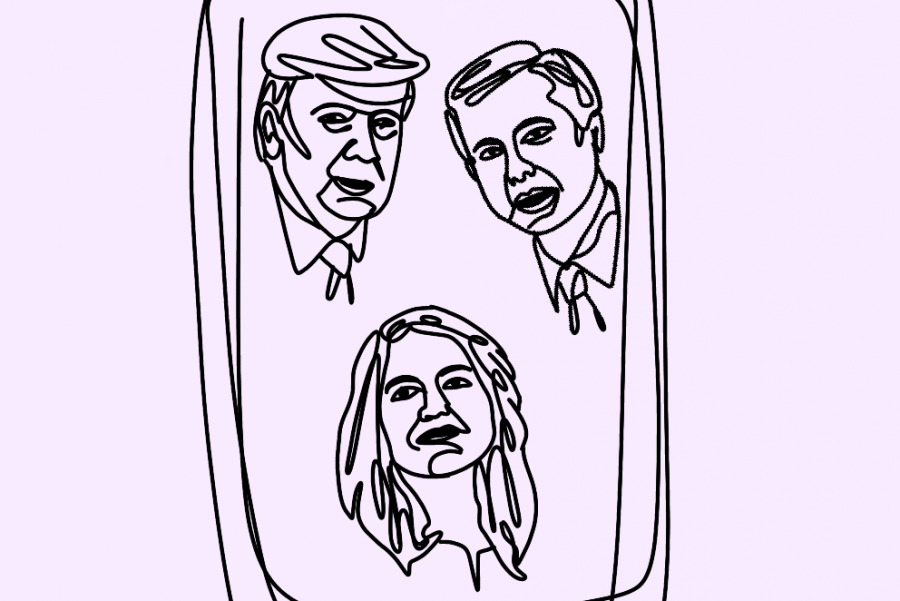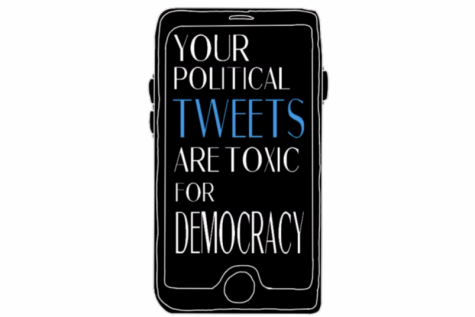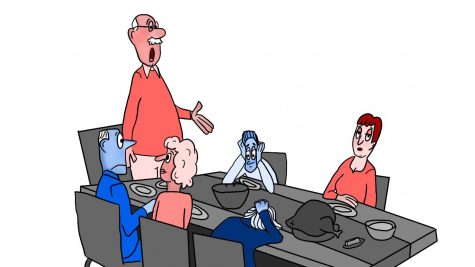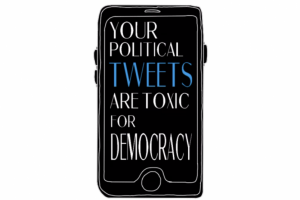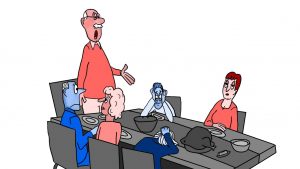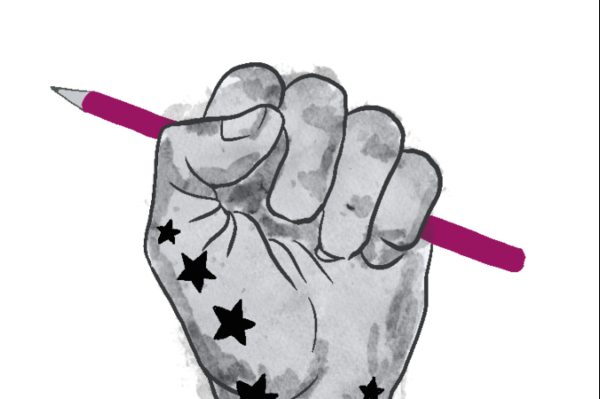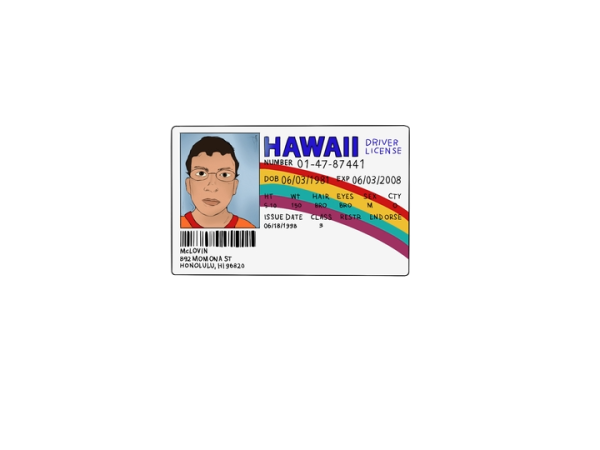The Brain Issue: Political persuasion
Instead of pictures with their friends, teen’s screens are full of political advertisements, endorsements and opinions.
As the day comes to an end, teens haul their heavy backpacks home. These exhausted students sit on their couches and pull out their phones to scroll through the latest posts they’ve missed. Instead of pictures with their friends, their screens are full of political advertisements, endorsements and opinions. Rather than relaxing, they see rant after rant and opinion after opinion. Their eventful days have become even more exhausting.
Jack Hoffmeister, senior, said high schoolers shouldn’t believe everything they see on the internet. He said teens should be able to post about who they want to vote for, but there are also places that have no room for political debate.
“I have never posted on social media about politics, but I have called people out for spamming their social media with their political beliefs,” Hoffmeister said. “If [teens] want to make a change, [they should] go out into the world and do something instead of sitting on [their] couch, ranting all day.”
We are the next generation, and we need to be able to share our opinions on the best way we know how: social media. — Caitlin Brackney
According to Hoffmeister, when a majority of a party’s opinions are criticized by online users of the opposite party, the internet reflects only one side of the political spectrum instead of a variety of beliefs. He believes this has already begun on social media.
“I’ve seen a lot of [politician’s] accounts get blocked or deleted because of them sharing their public opinion even though it isn’t hurtful,” Hoffmeister said. “[Their opinion gets] taken down because they are conservative accounts and that isn’t the most popular thing right now.”
Caitlin Brackney, sophomore, has posted about political debates on social media before. She said she believes it is a positive opportunity for teens to be able to share their opinions online.
“It is really important that teen voices are heard,” Brackney said. “We are the next generation, and we need to be able to share our opinions on the best way we know how: social media. As long as it is a healthy discussion, I think that it’s okay for politics to be discussed on social media.”
Like Brackney, Hoffmeister believes the political opinions of teens matter greatly in today’s society. Still, he believes teens need to be able to have better access to news outlets on platforms they use frequently.
“I think news expansion over the media is a positive thing because it’s given younger kids resources to learn about what’s going on in the real world,” Hoffmeister said. “Younger people need to know more about politics, which is hard because most teens have a small attention span. We’ll read one thing then get bored.”
Lisa Shinabargar, KHS social studies teacher, believes political campaign ads can be positive and negative, depending on the context they are viewed in. She believes they help build politician’s campaigns, but they also can set a bad example for younger generations when ads are negatively targeted directly at other candidates.
“I think anything that gets people excited about democracy [is a good thing for younger generations],” Shinabargar said. “There are still negative ads, which I don’t think are good for upcoming voters because it turns them away from voting.”
In Shinabargar’s AP Government classes, they recently studied echo chambers, which are areas where only one belief is repeatedly displayed. She believes that politicians set an example for teens that, after voicing their opinion, they will only hear positive feedback.
“I think that voicing your opinion on social media can be a really good thing if you’re open to hear other opinions that either solidify yours or differ from yours,” Shinabargar said. “I find that teens use social media to rant about their personal views and attack those who disagree with them, and that isn’t how [democracy] should be.”
Your donation will support the student journalists of Kirkwood High School. Your contribution will allow us to purchase equipment and cover our annual website hosting costs.

she/her
Favorite musical artist: Post Malone
Favorite quote: "Yeah, you pulled an all nighter. An all nighter in bed." - Tom Mueller
Favorite...

Interests: Drawing and hanging out with friends.
Favorite musical artist: Girl in Red.
Favorite quote: Bears, Beets, Battlestar Galactica”- Dwight...


